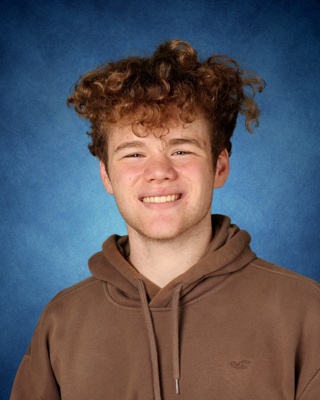“When you play the game of thrones, you win, or you die.”
This sentiment, spoken by Cersei Lannister, is becoming clear to the seniors in social studies teacher Amy Cooke’s AP United States Government and Politics class as the day of their class elections draws nearer and nearer.
For over 15 years, Cooke’s class has hosted mock elections for its students to educate them about how a real-world election works, as well as building off the course material.
These elections remain isolated to their respective class period. Students are put into three main groups: a campaign, an interest group, or a media outlet. This year, the elections are more intense than ever, as the candidates are doing everything they can to make themselves stand out.
It was not always like this, however. The election process has been evolving and changing since its inception.
“It used to be that students would just be part of a campaign, but I decided to add these other factions since they play such a huge role in the actual electoral process,” Cooke said. “It’s also a lot more fun.”
In the past, the election has had four tasks attached to it, but this year, that number was cut down to three. Each task requires the students to undertake something specific to their role in the election. For example, the first task requires the candidates to give a stump speech (a speech repeatedly delivered during their campaign), the interest group members to present a speech detailing who they are/the organization they represent, and the media outlet to create a short presentation about their ideology and reader demographics.
While being on a campaign is a big attraction for many, some prefer options such as the interest group because, according to Drake Woelfl, there is a lighter workload while still being part of the overall election.
“We prepare interview questions for the candidates, and based on their answers, we decide what/who we support best,” Woelfl said.
The tasks culminate in the presidential election of the candidates, which will take place toward the end of March.
“The results will reflect who the interest groups and I choose to endorse; I count myself as a lot of votes,” Cooke said.
To achieve the endorsement of their teacher and peers, the candidates have done extensive research.
“I’ve taken inspiration from previous candidates, such as Andrew Yang,” 1st period candidate Jefferey Lin said. “I’ve also found out that different political sides have more in common than you might think.”
The passion of these candidates to win by any means necessary also shows through one of the highlights of this year’s elections: smear campaigns.
“The initial campaign speeches started with people making subtle jabs at each other, which was a first,” Lin said. “But that day, someone made a smear campaign against me using fabricated images and data.”
Since that day, there have been multiple smear campaigns throughout the election, which have not gone unnoticed by Cooke.
“If I could compare this year’s elections to any in U.S. history, it would probably be the 2020 election between Biden and Trump,” Cooke said. “There’s a lot of trash-talking going on.”
Despite how ruthless the candidates and their campaigns are, none of it, according to [X] period candidate Sartaj Mahal, has translated into real-life conflicts between students.
“There’s no rivalry, and we’re not having fun in a way that’s degrading to other people,” Mahal said. “It’s more like healthy competition.”
This healthy competition has manifested itself into a Discord server, “AP Gov Nerds,” created by senior Isaac Tran.
“I made a big APUSH server last year for us to work together and study for hard tests,” Tran said. “I made the AP Gov server for the same purpose, and because I wanted to connect with other students.”
The server, according to Tran, has students from all four class periods, totaling 79 members.
“The roles in the server are created based on what period the person is in,” Tran said.
While the server has been moderately active for most of the year (particularly during exam weeks), it has seen a recent surge in activity for the elections.
“We’ve added new channels for the election, and it’s something the whole class can be a part of,” Mahal said.
Because of these factors, the AP Gov mock elections of 2024 are shaping up to be the most memorable ones that the class has had in years.
“They’re learning to work with and against each other, and a lot of them are getting caught up in winning,” Cooke said. “I hope a byproduct of that is some depth of knowledge about this topic.”



